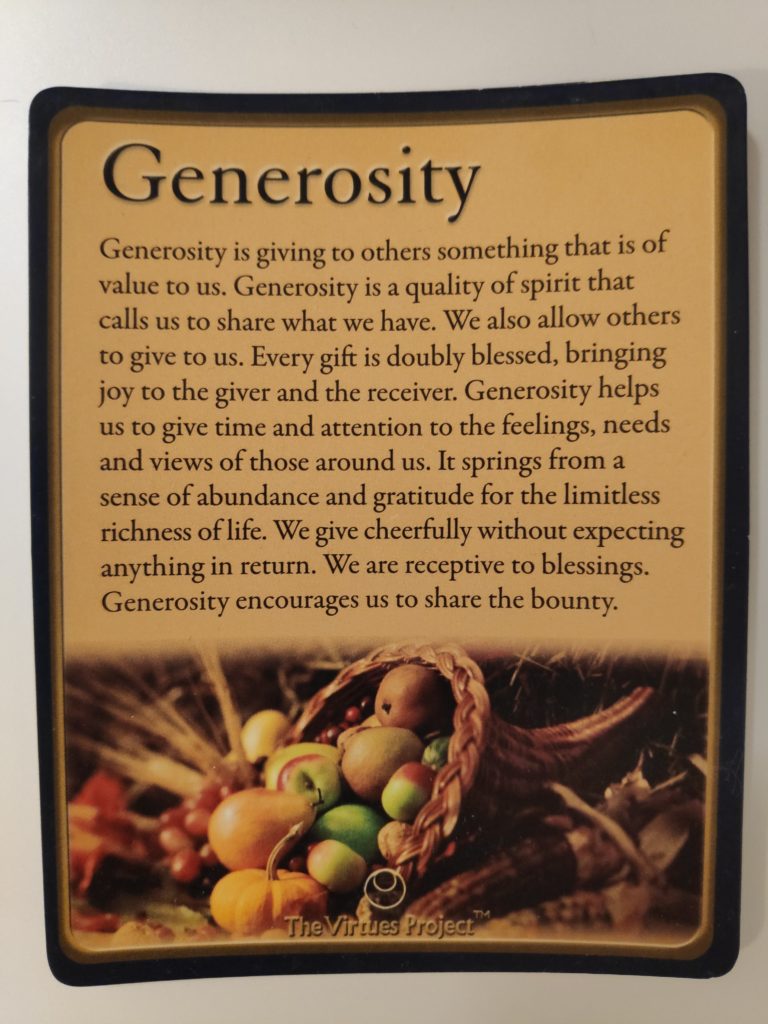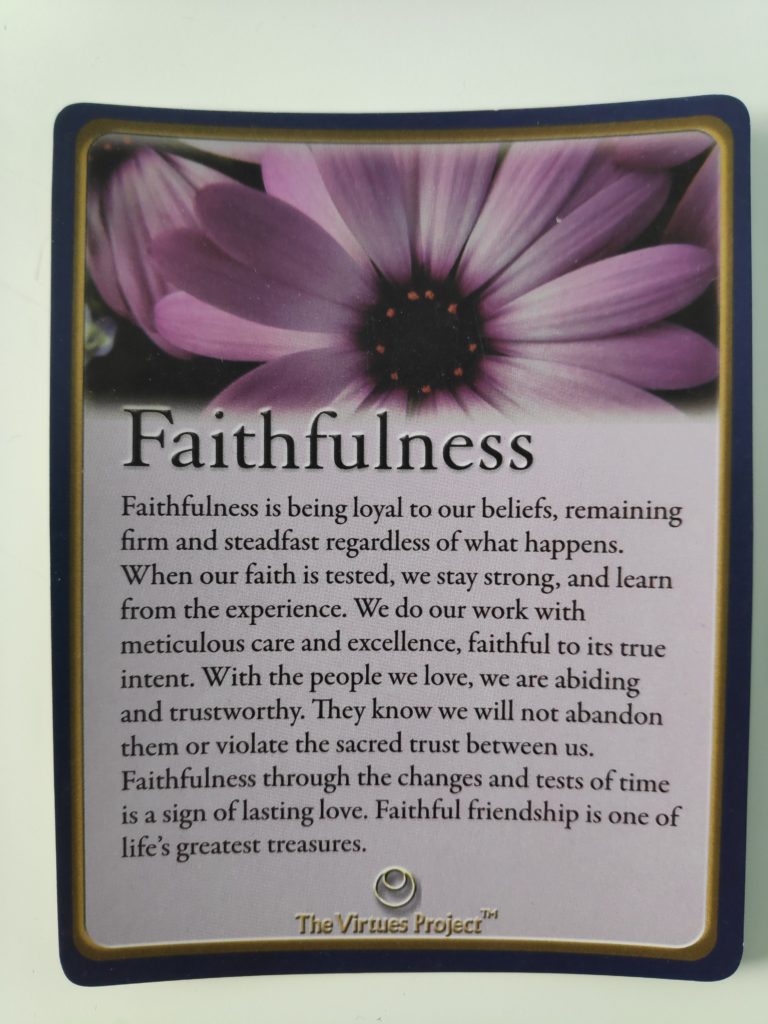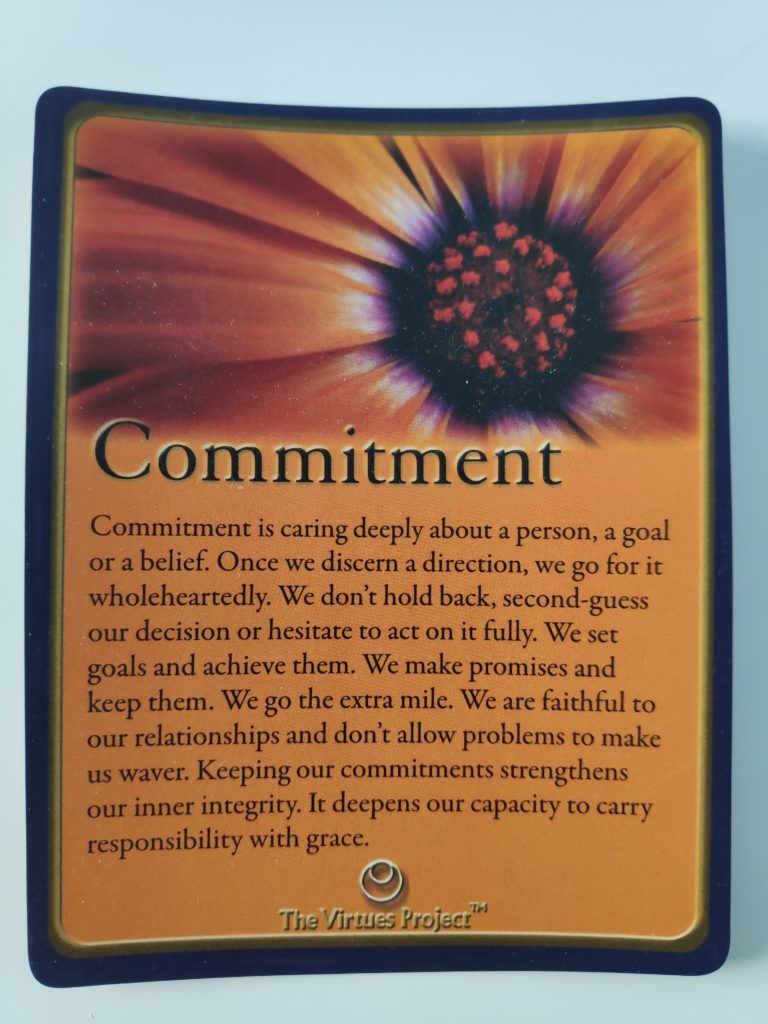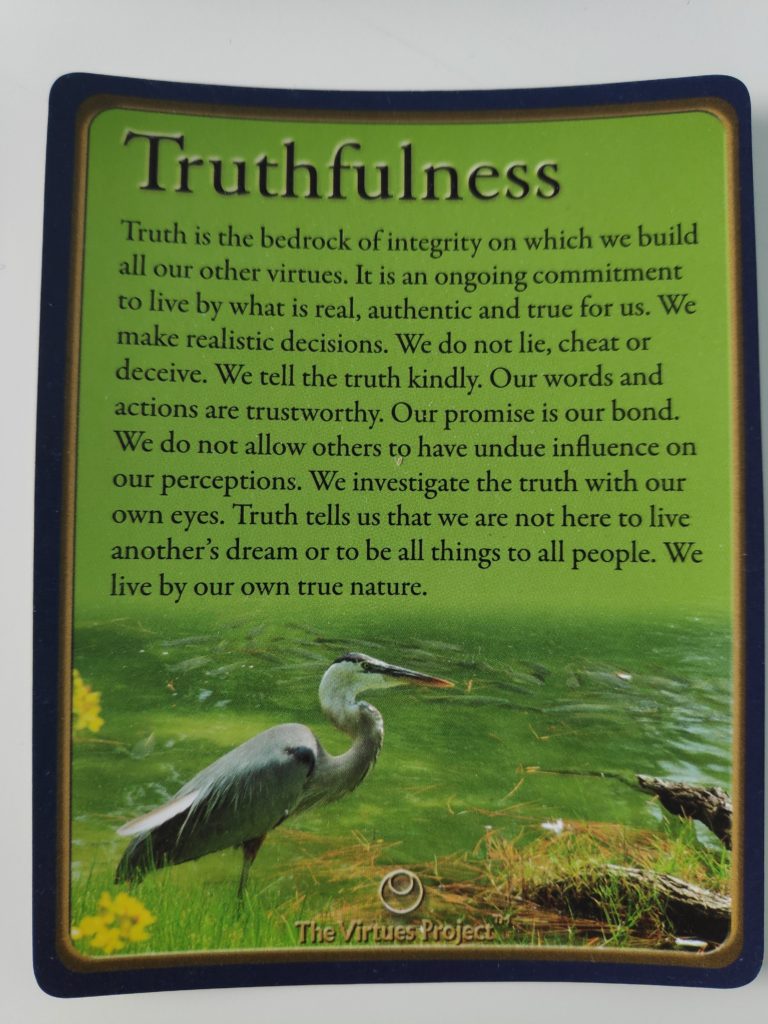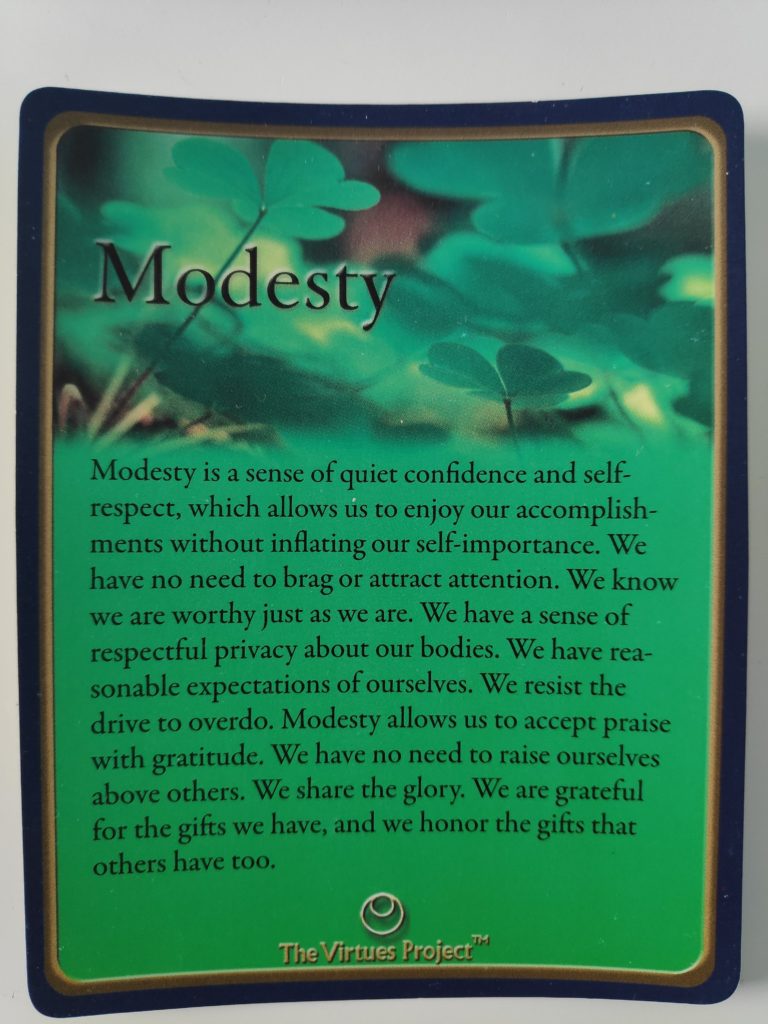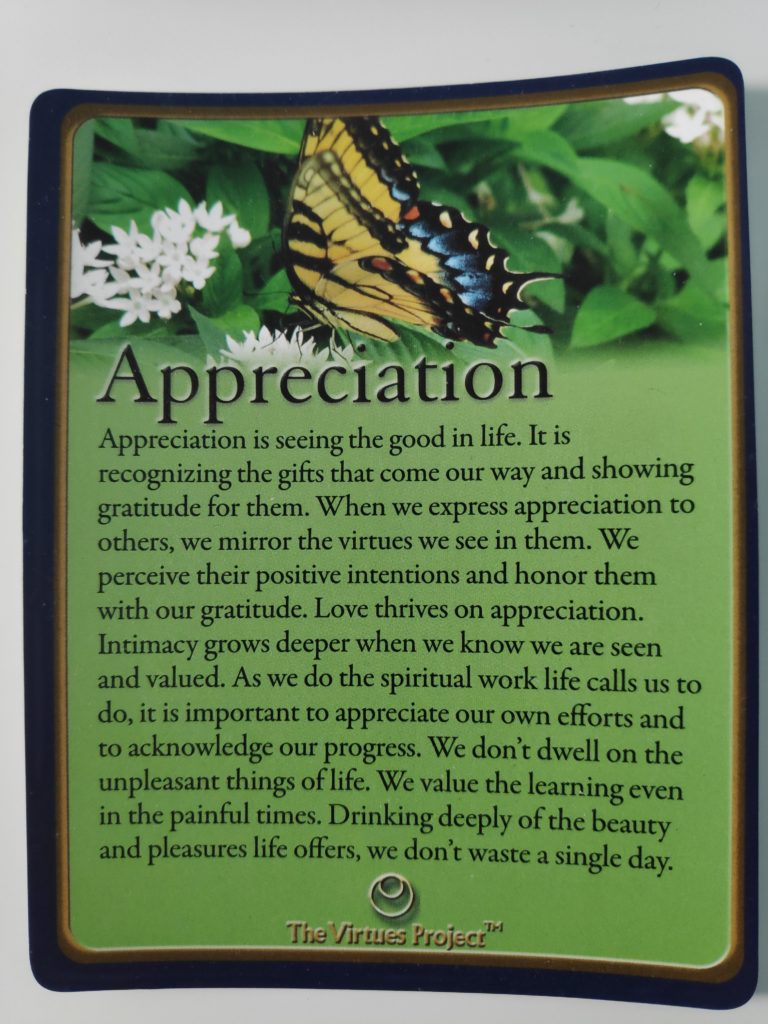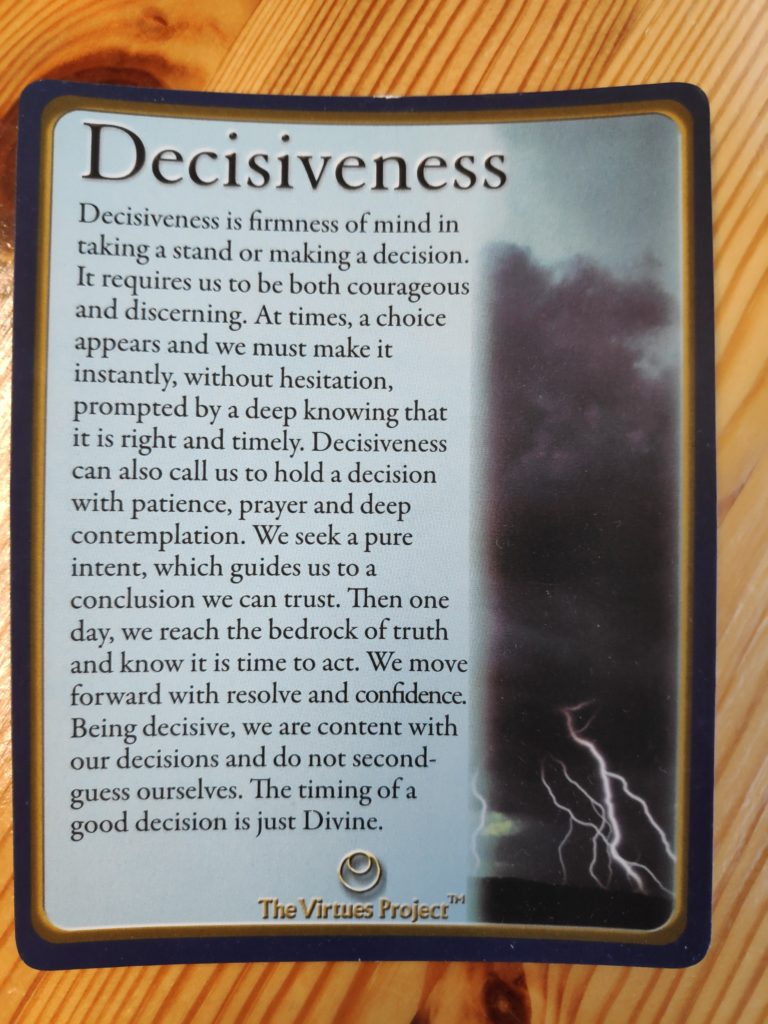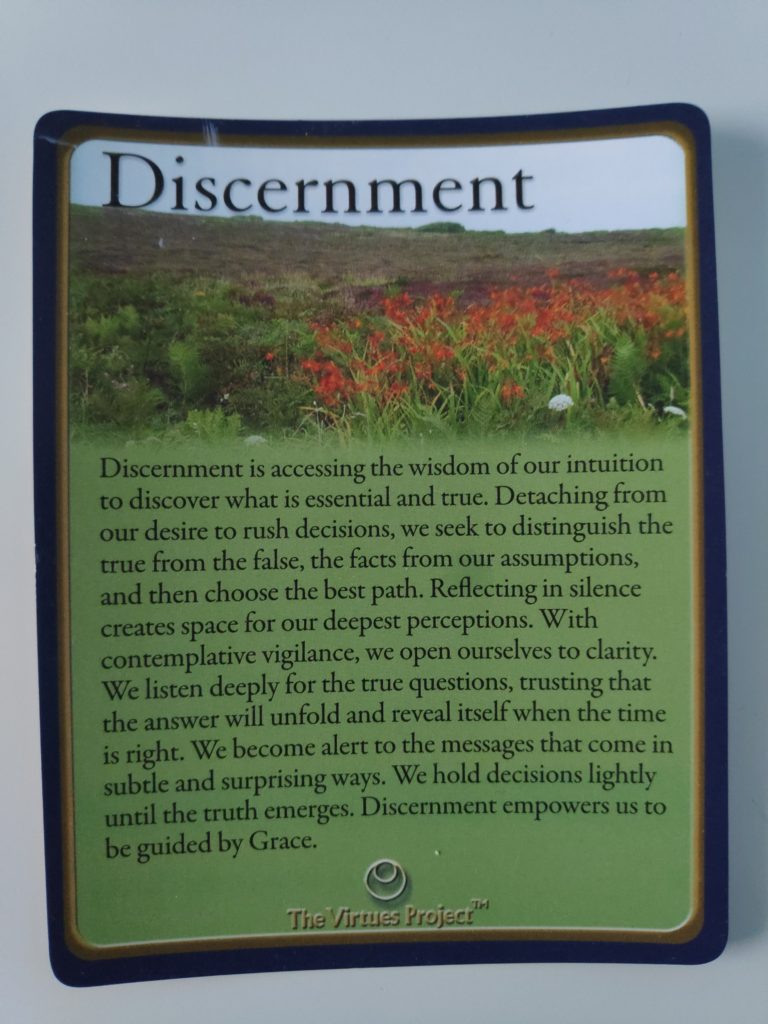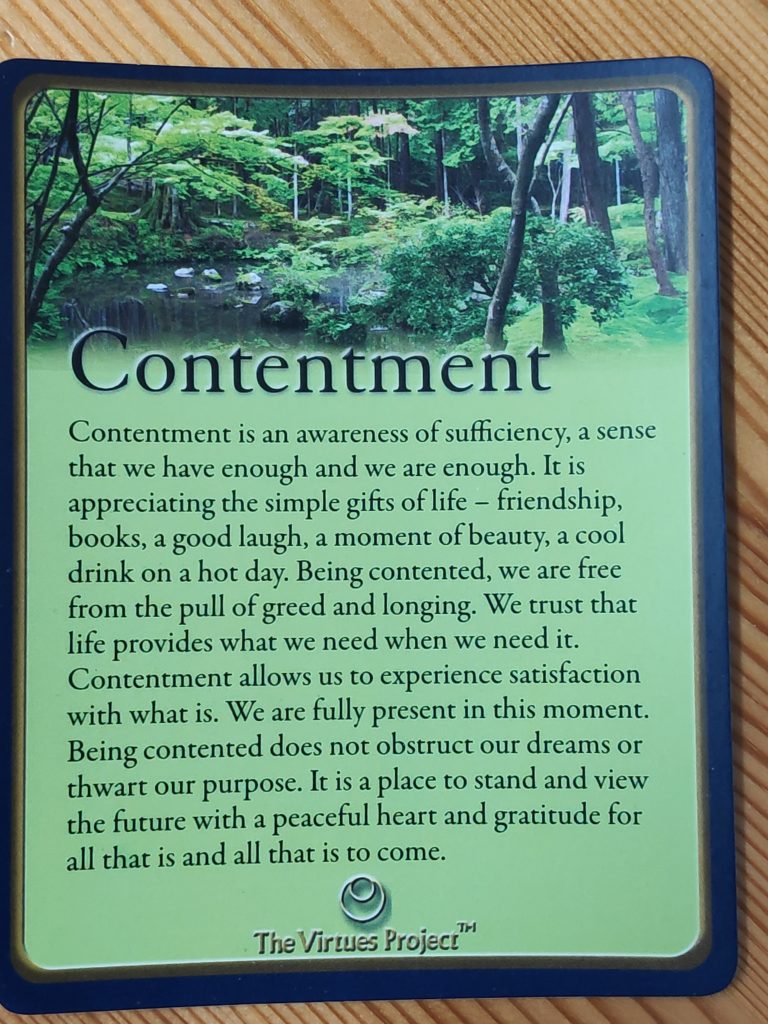In these days of corona-virus, home quarantine and restricted contact with people outside our own homes, tolerance becomes an important virtue to practice. Those we live with will not always have the same opinions as ourselves, so we have to be able to tolerate that others are difference from us. I also notice that the text for this virtue includes so many other virtues – diversity, unity, patience, forgiveness, discernment, justice, acceptance, grace and joyfulness. Good luck with the interaction of these virtues in your life.
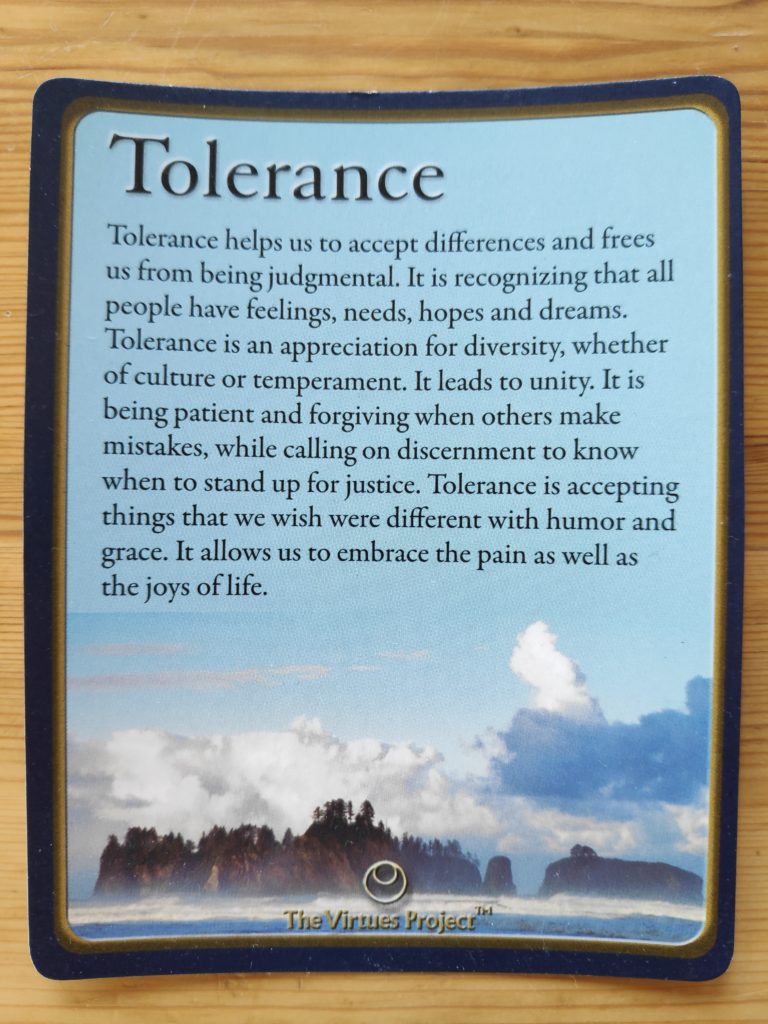
“Tolerance helps us to accept differences and frees us from being judgmental. It is recognizing that all people have feelings, needs, hopes and dreams. Tolerance is an appreciation for diversity, whether of culture or temperament. It leads to unity. It is being patient and forgiving when others make mistakes, while calling on discernment to know when to stand up for justice. Tolerance is accepting things that we wish were different with humor and grace. It allows us to embrace the pain as well as the joys of life.”
When I practice Tolerance, I:
- appreciate differences
- free myself from prejudice
- refrain from judging myself or others
- forgive mistakes
- accept what I cannot change
- balance acceptance with justice.

